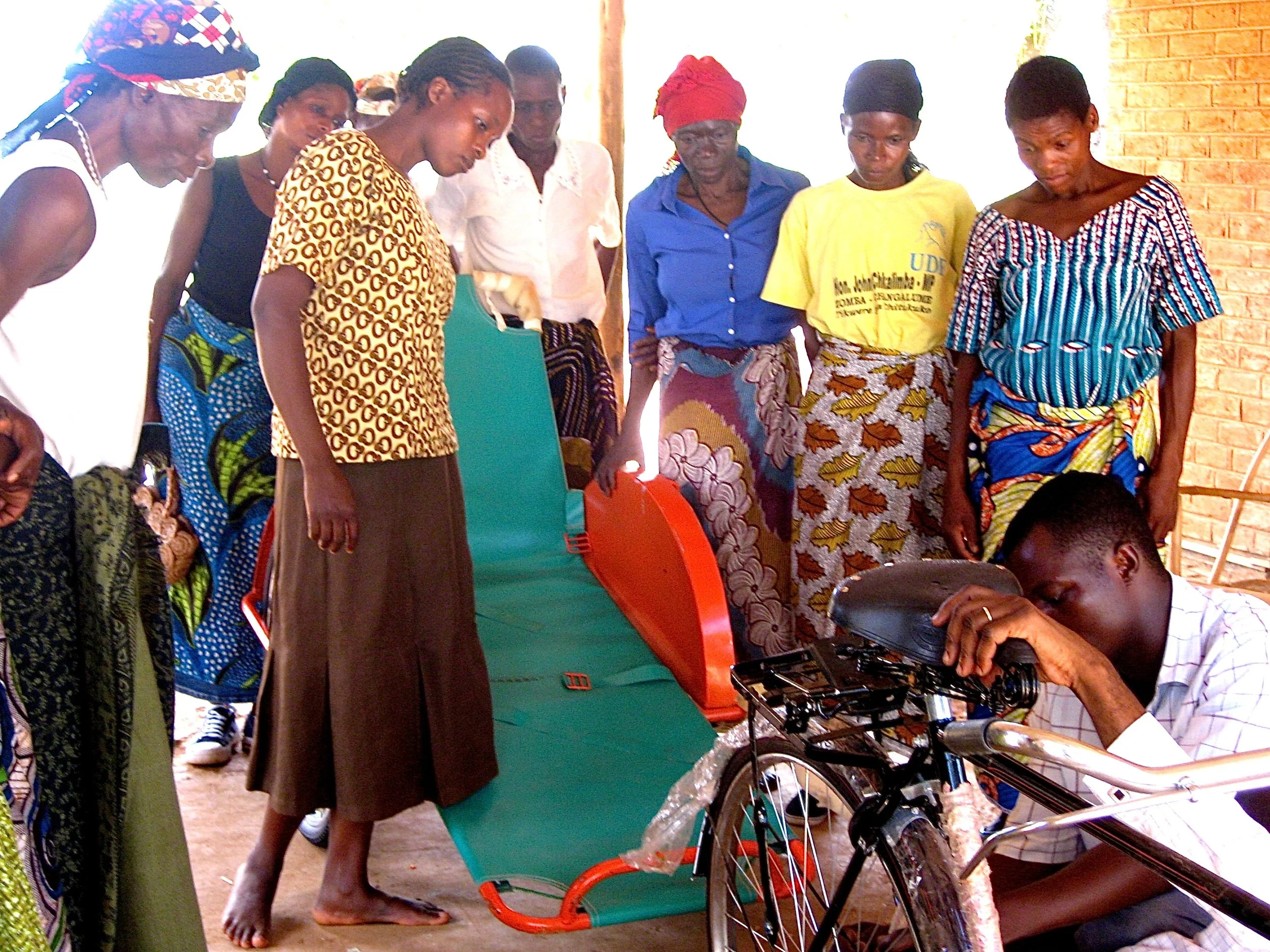bikes save lives
A bike can get a child to the school others are building, get a mother to the well others are digging, carry a rural village resident to the health service they desperately need in half the time and get a doctor to the people they are trying to save.
WITH A BIKE, A COMMUNITY HEALTH WORKER (CHW) CAN...
- Visit 13% more patients a day compared to those without bikes;
- Spend 46% less time travelling to deliver healthcare;
- Spend 4.6 days a week providing healthcare, vs spending 3.4 days a week without a bike
- Spend 26% more time per week providing their services.
WITH A BICYCLE AMBULANCE, COMMUNITY HEALTH WORKERS CAN...
- Save lives 89.5% of the time vs. 69.5% without an ambulance
The Bicycle Ambulance’s unique design guarantees a strong and durable solution for emergency transport to a Health Centre. All the parts of the bicycle ambulance are available locally. The bicycle ambulance has a number of innovative features:
- Strong mountain bike wheels
- The stretcher can be easily taken off the trailer, to carry the patient
- The patient is protected by mudguards and with safety belts
- The cart can be uncoupled from the bicycle, to use as a push cart
- Universal flexible rubber coupling makes it suitable for every bicycle
- The stretcher has excellent suspension ensuring greater comfort
- Sun and rain cover offer protection from weather elements
Lack of emergency health care services and professionals within rural Malawian villages and spread of diseases are causing the communities to struggle to deal with sickness and provide for their families. There are 3 main causes in the delay of health care:
- Delay in deciding to seek medical care.
- Delay in reaching a health care facility mainly related to transport and mobility issues.
- Delay in seeking care due to quality of health care received when facility is reached.
Health Centres give priority to patients who arrive on the bicycle-ambulance since they are well informed about the emergency nature of its use. Rural Malawians are more likely to seek medical care when there is access to transportation because there is less fear of being a burden upon their family (do not need to be carried by foot on a makeshift stretcher for 15km).
The bicycle-ambulance is a highly sought after and effective solution to increase access to health for rural communities.
WHERE THE BIKES AND AMBULANCES COME FROM:
- The Roadster bicycle is designed and manufactured in India by World Bicycle Relief and assembled in Malawi. Cost: $150CDN (including delivery to local community based organizations)
- The Sakaramenta Care Car bicycle ambulance is manufactured in Zomba district, Malawi. Delivered cost: $450CDN
All bikes and ambulances are designed and manufactured with the rigours of the local landscape in mind.
